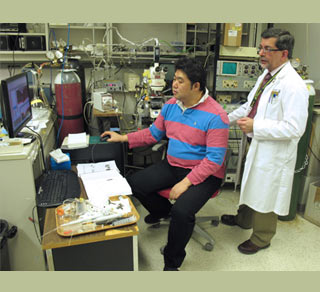
Estimations made assert that beta amyloid protein paves way for Alzheimer’s by making brain cells toxic and finally causing them to die. Amidst the investigation, experts laid hands on a novel method to halt the toxic effects of beta amyloid protein. Silencing the genes probably blocked several processes that trigger cell death and hence restricted brain cells from dying. On altering the genes, beta amyloid protein supposedly lost its ability to destroy brain cells effectively.
“From the point-of-view of therapies, it may open up some new avenues for us to explore in terms of treatment for Alzheimer’s disease. I think patients with this condition, their families and caregivers, live on a word called ‘hope’ and this is a type of a discovery that engenders that hope, that ignites that hope and that keeps it burning,†shared Jack Jhamandas, of the faculty’s Division of Neurology.
Scientists observed that the genes that could be silenced were not everywhere in the brain. Areas of the brain responsible for memory, learning and cognition apparently had large quantities of these genes and the toxic protein. Additional investigations will be undertaken to inject a compound into the brains of lab models and see whether learning and memory problems can be halted or averted.
The research was published in the peer-reviewed American Journal of Pathology in January.
